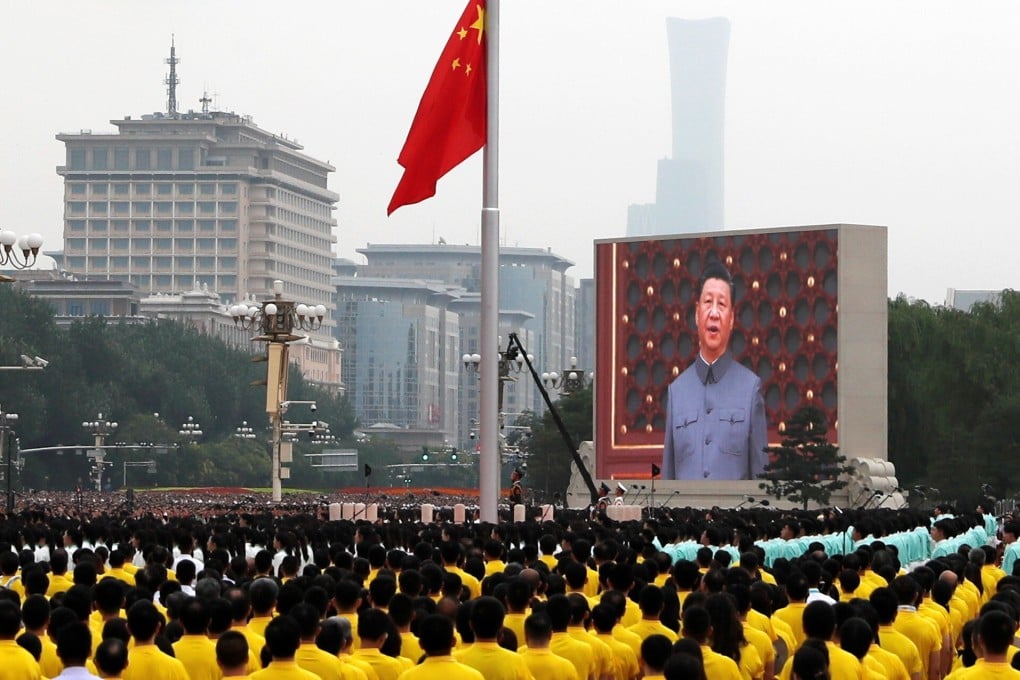Xi Jinping: China’s goals are within reach and we won’t be bullied
- President hails achievements made under communist leadership and says ‘success hinges on the party’ in spirited speech
- Centenary address reinforces narrative that the nation has embarked on a new era and stands tall in the global community, analyst says

For the first time, the ruling party celebrated its anniversary in central Beijing’s Tiananmen Square – a location reserved for the most important national events. Flanked by other party leaders both past and present, Xi, the most powerful leader in decades, stepped up to the rostrum at the Gate of Heavenly Peace to address the nation.

04:14
Xi Jinping leads celebrations marking centenary of China’s ruling Communist Party
“We have never bullied, oppressed, or subjugated the people of any other country, and we never will. By the same token, we will never allow any foreign force to bully, oppress, or subjugate us,” he said.
“Anyone who would attempt to do so will find themselves on a collision course with a great wall of steel forged by 1.4 billion Chinese people,” Xi said to loud applause from the audience of more than 70,000 people in the square.
In a crowning moment for Xi – who is expected to start his third term next year after the 20th party congress, which would make him the longest-serving party secretary – he declared that China had achieved the first of its “two centenary goals” and was now “a moderately well-off society in all respects”.